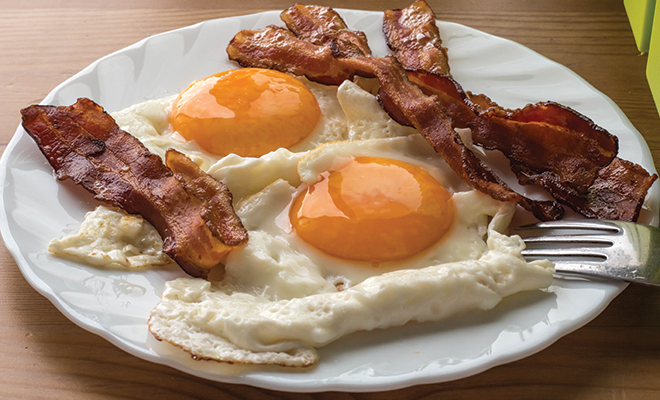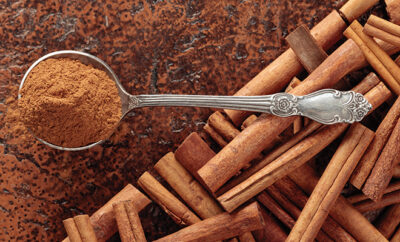
Heart Health and Cholesterol
When I was first married, I learned some hard lessons about how diet can affect health. Over the years, I have learned that lessons like these can change over time, because sometimes the textbook gets revised.
There is an old saying that even if you think you know your mate very well, you don’t really know them until you live with them. What I didn’t know about my new husband was that he had not had a general physical for many years. I felt strongly that a physical once a year was a good idea, and he agreed. An appointment was set. And then…
We learned that his overall health was great. He wasn’t overweight. But his cholesterol was off the charts. High cholesterol is associated with cardiovascular disease, so this news gave me guilt pangs. Every weekend we took one day to slow down and have a leisurely breakfast. I’d make a six-egg omelet with bacon or sausage, cheese, veggies and buttered toast. We were told we must change our diet and stop eating eggs because eggs are loaded with cholesterol.
As we discussed changing our diet, I discovered more things that I didn’t know about my husband. I had no idea that he had breakfast every weekday with a couple of pals at a local diner. He’d order the 2-2-2; for him, that was two eggs, two strips of bacon or sausage and two pancakes with butter and syrup. And I had thought that our weekend omelet was a rare treat! But wait; there’s more! For lunch, he usually went to a grocery that made a salad he absolutely loved. But this salad wasn’t healthy; it was a creamy, rich, cheesy macaroni salad. Lunch might be a man-sized tub of that, unless he bought the kind of sandwich that Dagwood Bumstead would envy.
As I processed the news that I was married to a man whose diet would surely kill him, I recalled that one of our friends was battling high cholesterol. She packed lunches made of steel-cut oatmeal topped with steamed carrots—no fat, no oil, no butter. She exercised and was the picture of health. Yet her cholesterol was still too high. So as my husband and I planned how to eat using no fat, oil or sugar for 30 days, I couldn’t help but wonder if a change in diet would even make a difference.
If you’re used to cooking with butter and olive oil, learning to cook fat-free is a huge change. We ate a lot of chicken, which I bought whole and then cut up, skinned and boned. The bones were simmered to make broth, which I de-fatted to make home-made chicken and vegetable soup. We didn’t reduce the quantity of food we ate, but we ate less meat and more vegetables. By the end of the month, I’d lost five pounds. Happily, at the end of the month my husband’s cholesterol was within a normal range.
But why did our friend with a severely restricted diet still have high cholesterol?
One more thing I didn’t know is that there is a difference between dietary cholesterol and blood cholesterol. Cholesterol itself is important to our bodies. It’s found in every cell membrane, and it’s crucial for digestion as well as for producing steroid hormones such as testosterone and estrogen. In fact, if you don’t get enough cholesterol in your diet, your liver produces the amount of cholesterol that you need to survive. If your diet is high in cholesterol, your liver produces less. We know now that some people, like our friend, produce more cholesterol than they need, and changing diet won’t decrease it.
While it’s true that eggs are high in dietary cholesterol, most healthy people can eat an egg every day. Eggs also have health benefits. They are rich in protein, nutrients such as choline, and vitamins such as biotin and Vitamin A as well as certain antioxidants. The key is moderation. It’s not good to have a three-egg omelet or pack three or four hard-boiled eggs for your lunch every day. How you prepare eggs also makes a difference; scrambled eggs with broiled or sliced tomatoes is a healthier choice than fried eggs with bacon, hash browns and buttered toast.
What’s the biggest health threat for cholesterol levels? The answer is trans fats, found in hydrogenated oil, which are used in fried and processed foods. They can raise levels of “bad” cholesterol, or LDL, and reduce levels of “good” cholesterol, or HDL.
High cholesterol produces no symptoms, but you can easily check your cholesterol levels with blood labs as part of an annual physical. So be good to your heart and set that appointment, especially if you haven’t had one since you can’t remember when. ■
Sources: hsph.harvard.edu and healthline.com.







